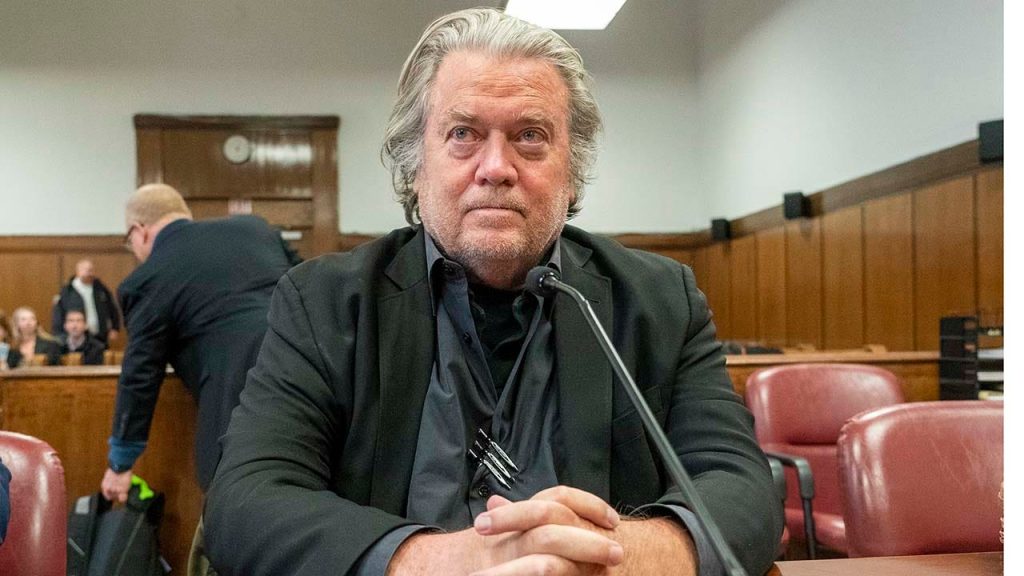Former White House official Steve Bannon’s appeal of his contempt of Congress conviction was denied, meaning he will have to serve jail time for ignoring a subpoena from the House select committee investigating the Jan. 6, 2021, riot at the U.S. Capitol. The U.S. Court of Appeals for the D.C. Circuit said granting Bannon’s appeal would undermine Congress’s investigative authority. Bannon claimed he acted on the advice of his legal team, but the court ruled that the “advice of counsel” defense is not valid. Bannon was sentenced to four months in prison and a fine for defying the congressional subpoena. He plans to appeal the ruling, arguing that there are important constitutional issues at stake in the case.
Bannon’s attorney, David Schoen, argued that the court’s decision is wrong as a matter of law and sets a dangerous precedent for future cases involving congressional subpoenas. He stated that Bannon’s previous attorney advised him not to comply with the subpoena based on claims of executive privilege. Schoen maintains that people should not be criminally prosecuted or sent to prison for following legal advice that they believed was in compliance with the law. Other officials who served under Trump, such as former White House trade adviser Peter Navarro, have also reported to prison for contempt of Congress.
The court’s ruling upholding Bannon’s contempt of Congress conviction is seen as a victory for congressional authority to investigate matters of public interest. The court emphasized that individuals cannot rely on advice of counsel as a defense for disobeying a congressional subpoena. Bannon’s ongoing legal battle highlights the challenges and consequences faced by individuals who refuse to comply with congressional requests for information. The case also raises important questions about executive privilege and the limits of presidential power in relation to congressional oversight.
The decision in Bannon’s case has broader implications for future congressional investigations and the ability of lawmakers to compel witnesses to testify. By affirming Bannon’s conviction, the court reinforces Congress’s authority to subpoena individuals and hold them accountable for contempt if they refuse to comply. The ruling sends a clear message that individuals cannot simply ignore congressional subpoenas without facing legal consequences. This case serves as a reminder of the importance of cooperation and transparency in the democratic process, particularly when it comes to investigating significant events like the Jan. 6 Capitol riot.
Bannon’s determination to appeal the court’s decision reflects his belief in the validity of his legal defense and his commitment to challenging the ruling. Despite the court’s rejection of his appeal, Bannon and his legal team continue to argue that he should not be held criminally liable for following legal advice that he believed to be lawful. The ongoing legal battle over Bannon’s contempt of Congress conviction serves as a contentious and divisive issue that raises crucial questions about the boundaries of executive privilege, congressional authority, and individual accountability in the face of legal proceedings. As the case moves forward, it will be closely watched for its potential impact on future congressional investigations and the enforcement of subpoenas in matters of national significance.


